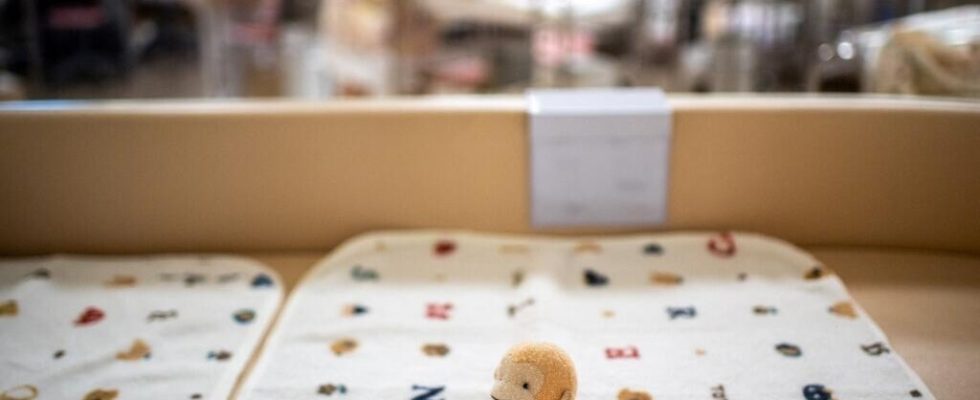France must “ recognize » officially and « without detours ” THE “ collective deficiencies » which allowed illicit international adoptions and take “ in consideration ” THE ” consequences » harmful for adoptees, according to a report published Wednesday.
2 mins
In November 2022, the government tasked three inspections (Foreign Affairs, Justice, Children) with shedding light on “ illicit practices in international adoption “.
Their 118-page report, completed in October 2023, was officially submitted on Wednesday to the Minister responsible for Children and Families Sarah El Haïry and to the Minister Delegate responsible for the Francophonie and French people abroad, Franck Riester, in presence of certain adoptee associations. “ The rise of international adoption in an unregulated or poorly regulated context has been accompanied by significant abuses », recognize the inspectors, who carried out 179 hearings.
Read alsoChildren’s rights: international adoption, always a delicate issue
“ The absence or weakness of control exercised by public authorities, combined with strong demand from Western countries, have put pressure on fragile local environments, marked by poverty and not free from corruption », they write.
Adoption has “ gave rise to real trafficking »
Adoption became a potentially very lucrative market, giving rise to the emergence of numerous intermediaries. The payment of large sums of money to facilitate operations, or the obtaining of parental consent which in reality is very poorly informed, seem to have been common practices. », Add the authors of the report.
Adoption has “ gave rise to real trafficking based on the falsification of documents to make a child adoptable, the “production” of children for adoption, the theft of children from the maternity ward… », they continue. Nearly 120,000 French people have been adopted abroad since 1945, according to this report.
International adoption developed from the 1960s, with a peak of 4,079 children adopted in France in 2004, before declining, as it was framed by international treaties and more controlled, to become established to 232 children in 2022.
